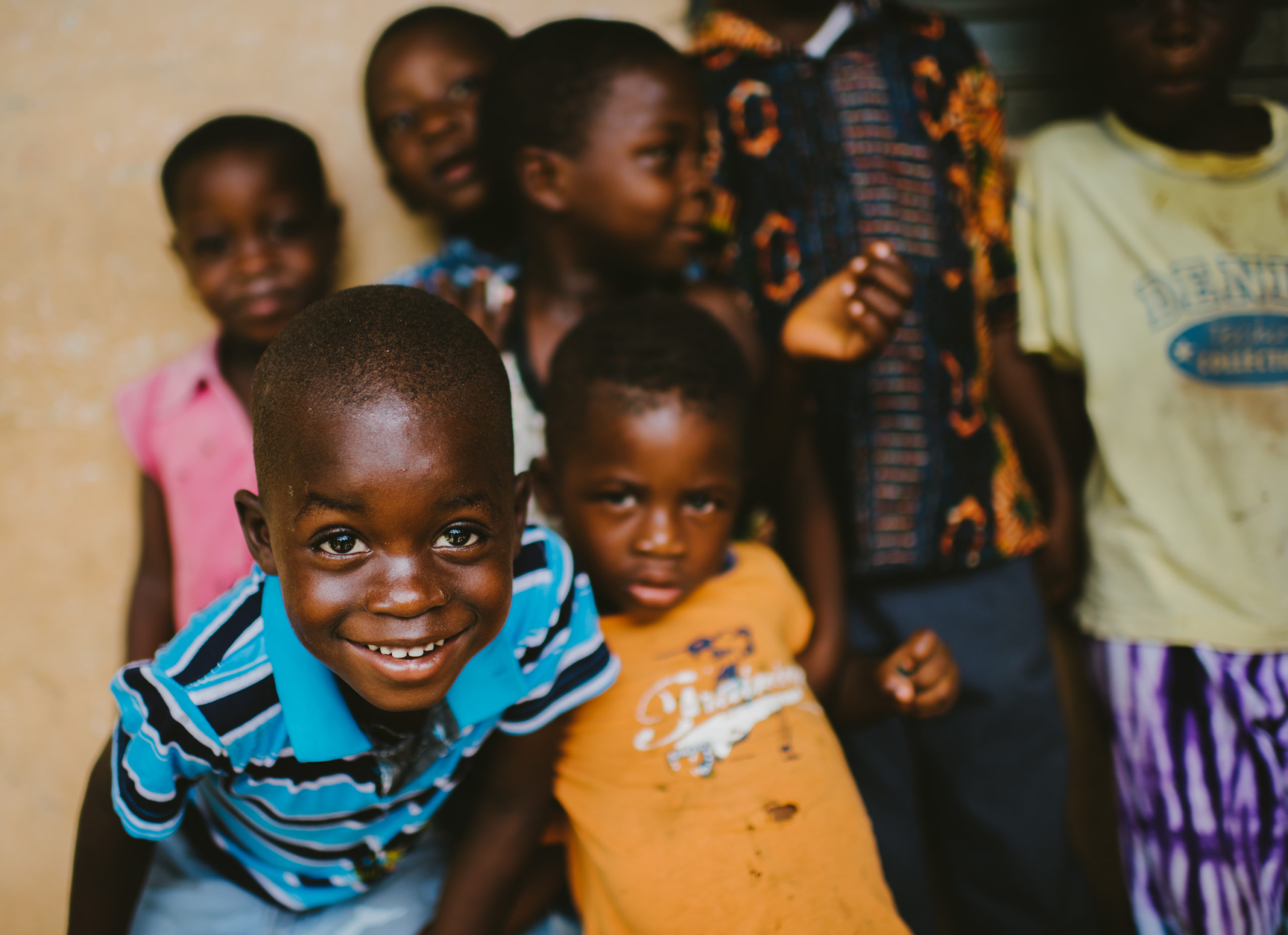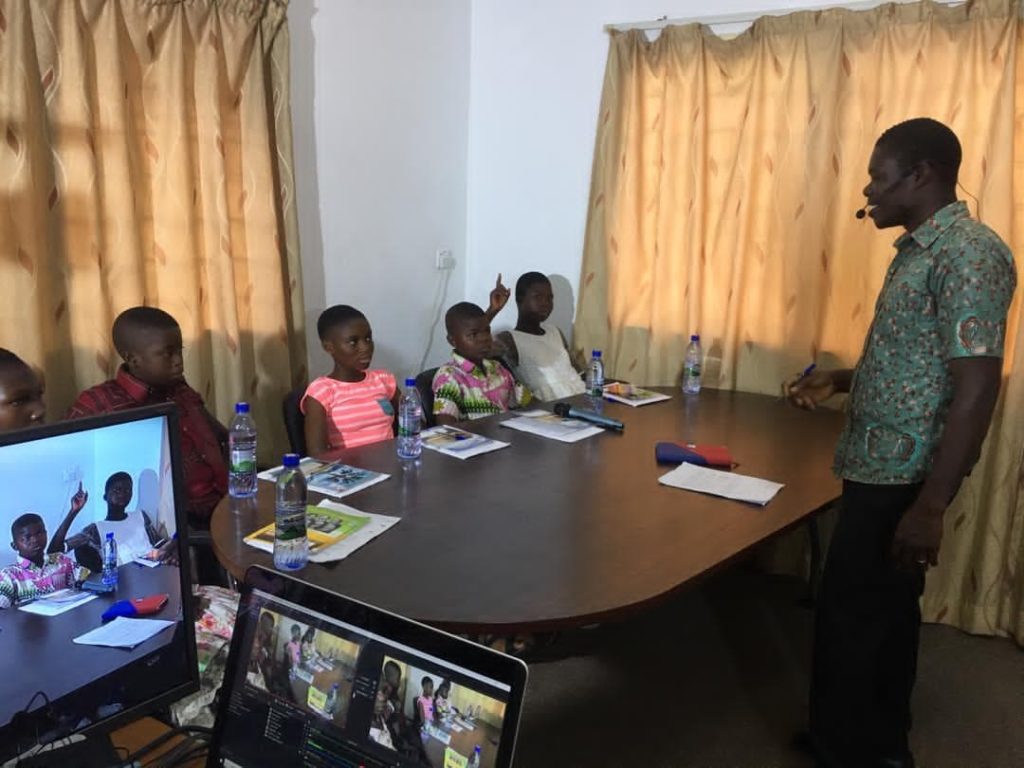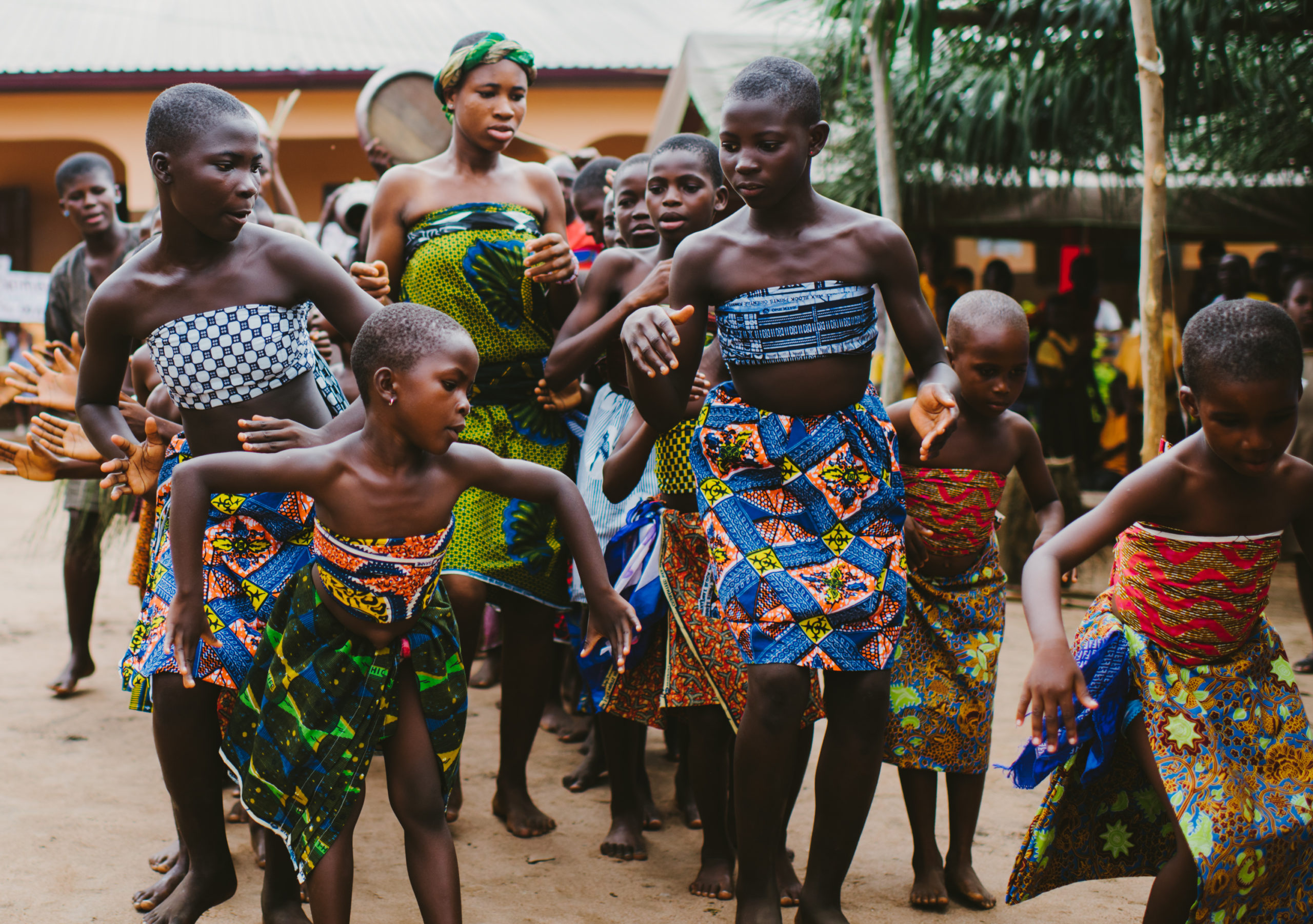In Ghana, schools were closed in March due to the COVID-19 pandemic and closures remain until the end of this year. At the time of the closure, expectations were driven by some optimism that schools would be opened sooner than later – but that would not happen. The spread of the virus continued unabated, devastating lives and eroding economic gains across the globe.
The normalcy characterized by our work at Pencils of Promise (PoP) has also been disrupted. The pandemic has necessitated a new routine that is not characterized by our usual meetings and preparations for training workshops. One that does not involve the normalcy we see in our partner communities: the learnings, laughter, and smiles we see in the classrooms and playgrounds, the interactions and engagement with teachers, as well as between learners. Many children cannot reach their classmates and friends by any means remotely and are cut off from other learning opportunities accessible to others in urban centers – a reflection of the light cast through the inequalities and inequities spectrum – revealing the stark reality of social disparity. The reality is that, given the well intentioned interventions by government agencies, socio-economic and structural challenges confront emergency strategies.

Equally worrying is the loss of learning time – a dire consequence of the school closures. We can only imagine the effect of the pandemic on the children living in the remote and rural communities of the country. Most of these children’s parents and guardians are neither literate to engage them with some learning nor do they have access to resources to engage the services of private tutors to make up for the loss of instructional hours.
There was a UNESCO, UNICEF and WHO press conference on September 15 to provide an update on the new guidance on school-related public health measures in the context of COVID-19. The Executive Director of UNICEF, Henrietta Fore, remarked that 24 million children are projected to drop out of school due to the pandemic. This projection is based on the potential factors amenable to lure children into either anti-social or economic activities that may make it difficult for them to sustain their interest in education, and therefore re-enroll into school at a later date.
PoP aims to bridge the gap between children who have access to remote learning services and those less advantaged by providing accessible education during this pandemic. Livelihoods have been lost and incomes dwindled – compelling some parents and guardians to make their children work to support the household. If their parents were aware of a remote learning opportunity in their community, they could potentially make a trade-off in favor of their education.

A few weeks after the initial lock-down in March, some lessons started running on a few TV stations. These lessons have continued to date. They are only accessible to children in homes where televisions connected to satellite dishes are available, in communities where there is affordable power and internet connectivity is not a challenge, and in homes where computers, digital learning platforms and other mobile electronic devices like tablets and smartphones are affordable to parents and guardians. In sharp contrast, the majority of the parents and guardians in our partner communities are not part of this demographic. They have limited means to afford such essentials.
PoP Ghana strategized to create a program consistent with what we have already been doing, with the same goal of making quality education accessible to children. With our radio literacy program, we seek to ensure some semblance of equity – at least for the rest of the year — with the hope that eventually, things will return to normal.
How did PoP go about this?
The Teacher Support (TS) team invited four teachers from our partner schools and a Training officer from the Keta Municipal Education office to help plan 18 English lessons from the standard-based curriculum. To be guided by the government’s own radio literacy program, the team reviewed what the Ghana Education Service was running on a variety of radio stations to ensure our content was properly aligned to theirs. The team scripted all 18 lessons and sought external assistance to review five of them for recording. These lessons are: Storytelling, Parts of a text, Determining the contextual meaning of words and phrases, Adjectives and Adverbs.
A makeshift classroom was created in our conference room with five learners from a partner school, Sokode-Ando E.P. Primary. Three teachers facilitated three lessons while two coaches from the TS team (Selorm Nyamalor & Evelyn Kangah) facilitated the other two.

Before each lesson was recorded, the facilitators had interactions with learners to get acquainted, easing any discomfort they may have had about being recorded. Amidst the rare technical issues, the slip-ups, jokes and laughter that characterized our make-shift classroom, the recordings came out successfully. It was really fun and interesting for the learners, too, since it was the first of such an experience for them. The lessons were subsequently reviewed and approved for airing.
What was our intended reach?
We intended to reach children in the Volta, Oti and Eastern regions of Ghana. Even though this program was originally intended to be aired on radio, we acknowledged that not every home in our partner communities have radios. Thus we opted for the lessons to be played at Information centres. Ten functional Information centres in partner communities were selected: Attakrom, Ve-Kolenu, Leklebi-Duga, Aveme-Danyigba, Tafi-Atome, Avatime-Dzogbefeme, Akpokope, Adaklu-Avedzi, Adaklu-Kpatove, and South-Senchi.
A few days before the lessons would be aired in the communities, coaches were deployed to announce the program at the centers, including the days and the number of times they were to be played. Students who missed the morning session would still have the opportunity to listen to it in the evening. A lesson was to be aired two days in a week – summing up to five weeks of running five lessons. This announcement was crucial to getting parents involved in ensuring that their children made the time to fully participate in the lessons.

The audio lessons were delivered to the operators at the Information Centers, which are community centers with public address systems used for making announcements. The contact numbers of the operators at the centers and two community members were taken so that we can get feedback regarding participation and possible challenges.
Our radio literacy program is expected to deal with the challenge of potential learning loss in this perilous time as well as ensure some semblance of equity and inclusivity in primary education. We also believe that children will eventually need a smooth transition back to the classrooms.
A quote by the World Bank Global Director for Education, Jaime Saavedra in a press release on June 18 suggests a certain paradigm shift that is tenable.
“We cannot waste this crisis. This shock might have lasting negative impacts, but it must be an opportunity to accelerate, not go back to where we were before. We will go to a new normal with a different understanding of the role of parents, teachers, and technology. A new normal that should be more effective, more resilient, more equitable, and more inclusive. We owe it to our children.”
Jaime Saavedra, Global Director for Education, World Bank